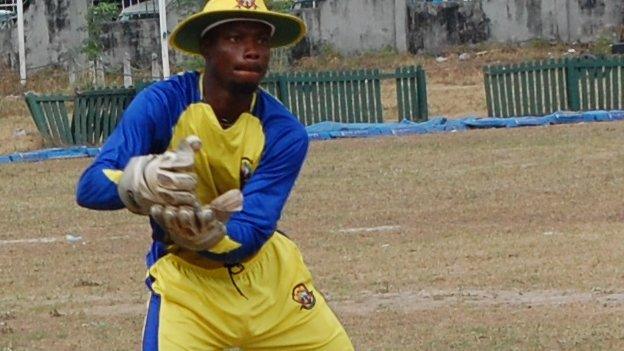Own goal? Africa's shambolic sports management
- Published
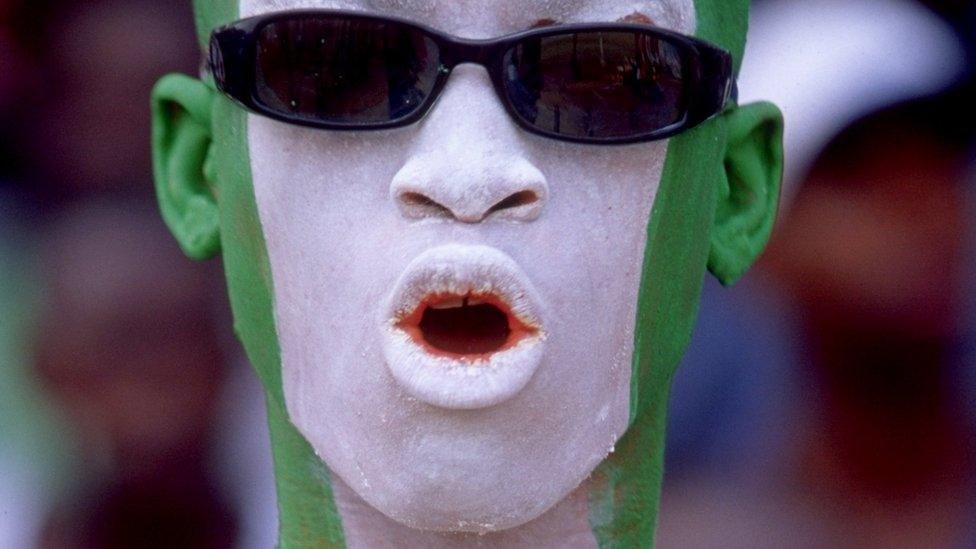
The call for better management of sport is heard across Africa - often as a lament, more regularly as an outburst of barely contained frustration.
In football, former Ajax and Juventus defender Sunday Oliseh recently quit as Nigeria's national football coach, citing contractual violations and lack of support from his local federation.
Months earlier, Zimbabwe were disqualified from the 2018 World Cup qualifying tournament after its football association failed to pay a former national coach.
In athletics, Kenya only recently averted the threat of disqualification from the 2016 Olympic Games because of its previously long-standing failure to implement robust drugs-testing procedures - nearly 40 athletes have failed tests in the last four years.
And yet Kenya would surely be far better protecting what is regarded as one of its greatest assets - indeed, impressing on the top table of global sport is recognised as a surefire way of propelling a little-known nation on to the planet's psyche.
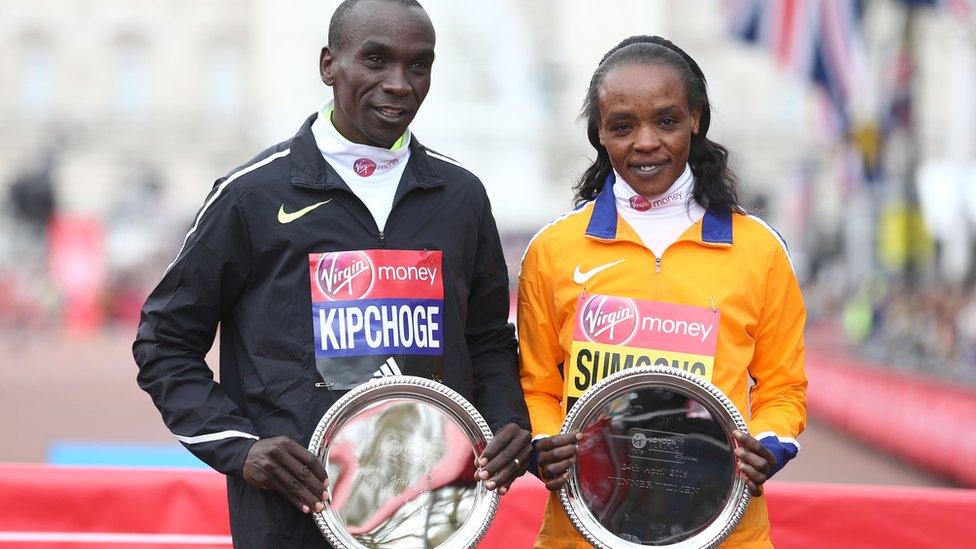
Kenya is known for its athletics prowess - two Kenyans won this month's London marathon
"It is thanks to football that small countries can become great," beamed footballer Roger Milla after his Cameroon side because the first African nation to reach a World Cup quarter-finals in 1990.
So given the global standing that countries can achieve through sport - not to mention the political capital that a ruling party can gain through overseeing such success - are African administrators doing enough to ensure success?
'Embarrassing'
With a host of different disciplines in Africa's 54 countries, it is wise to avoid generalisations, but a potted look at some recent issues suggests significant problems abound.
During the 2014 football World Cup qualifying campaign, seven African countries forfeited matches after they were found to have fielded ineligible players - an administrative oversight that only one other country across the rest of the world managed to repeat.
One of the most embarrassing moments in South African sporting history - and there have been a few - came when the football association president publicly congratulated his players for qualifying for the 2012 Africa Cup of Nations - when his organisation's misunderstanding of the rules meant they had erroneously played for a draw when they needed a win. They did not qualify.
Then take Nigeria - Africa's biggest population and arguably the continent's most football-crazed nation - which has failed to qualify for three of the last four Africa Cup of Nations tournaments.
Yet this has little to do with the quality of Nigeria's players - as proven by the fact that the Super Eagles won the trophy in 2013, either side of these qualifying failures - and more to do with administration.
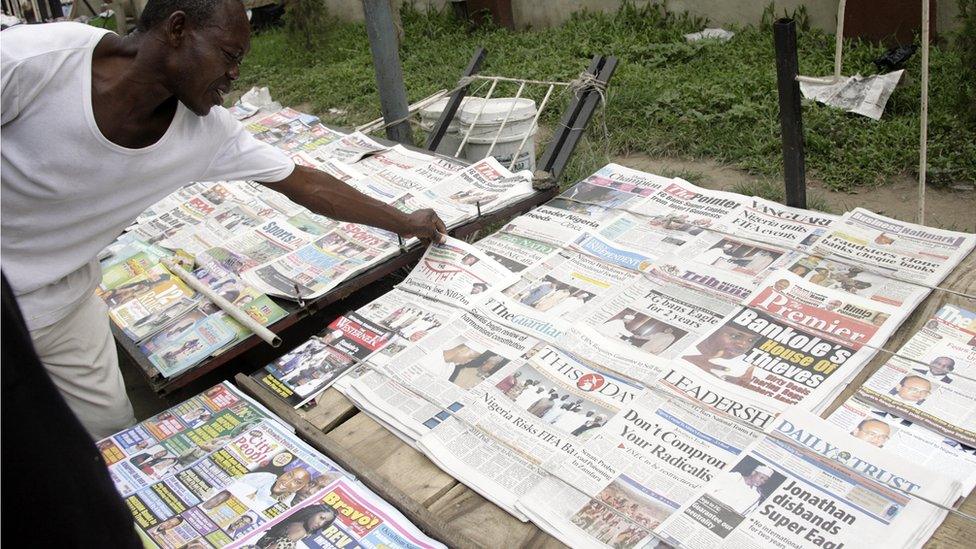
Some argue that a more robust media in Africa might hold officials to account
This last qualifying campaign featured three coaches in the space of 12 months and endless accusations and counter-accusations between the coaching staff and Nigeria Football Federation (NFF).
At the same time, a row over who is actually in charge of the NFF has led to the threat of a ban by football's world governing body Fifa - not for the first time.
Then last week, the embarrassing scenario whereby one of the officials announced for a local fixture was found to have actually died a few months earlier.
Repeated threats
Kenya has not only been in trouble with the world athletics governing body for its slovenly pace in dealing with anti-doping.
Senior athletics officials have been suspended by the IAAF while an investigation takes place into allegations of "subversion" of the anti-doping process and the "improper diversion" of funds received from Nike. Allegations the officials deny.
And while the East African nation has finally passed a law to bring its anti-doping programme up to scratch, this was only achieved after repeated threats from the World Anti-Doping Agency and the IAAF.
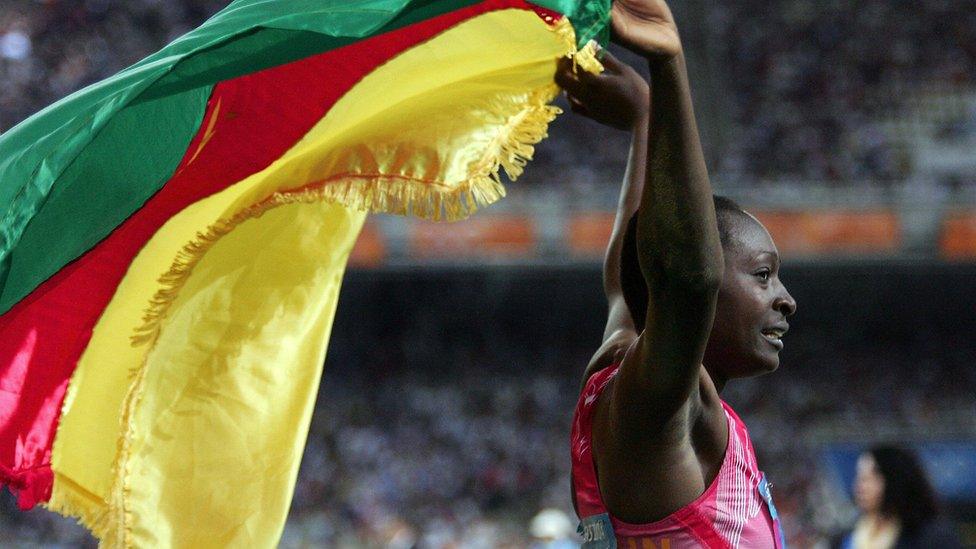
Francoise Mbango made history at the Olympics, but with little help from Cameroon
Amidst the endless negativity of bonus rows, coaches not being paid on time, funds going missing, match-fixing scandals and insufficient stadium security, there are some positive stories.
The Algerian Football Federation of a generation ago deserves special mention as a proactive sports administration.
For years it pushed Fifa into changing rules on player eligibility and then, in 2004, it was the first to profit as Antar Yahia became the first footballer to represent one nation at junior level (France) before playing for a different one at senior level (Algeria).
After the rule change, the North Africans qualified for the 2010 World Cup, their first finals in a quarter of a century, thanks to fielding a squad dominated by former French youth internationals - with Yahia scoring the dramatic qualifying goal, external.
More recently, Kenya's Rugby Sevens won their first World Series title by thumping defending champions Fiji in the final in Singapore.
The result was built on a lot of hard work and determination, with Kenya having been to well over 100 tournaments before this first success.
The silverware finally shone a light on those endeavours but some African sporting associations, however well run, will never get that chance.
Without a trophy, which does not always have to be the only marker of progress, their deeds go unnoticed.
Cronyism
And you can bet that they will share one major gripe - which is that football dominates the budgetary attention of a nation's sports ministry to the detriment of all other disciplines.
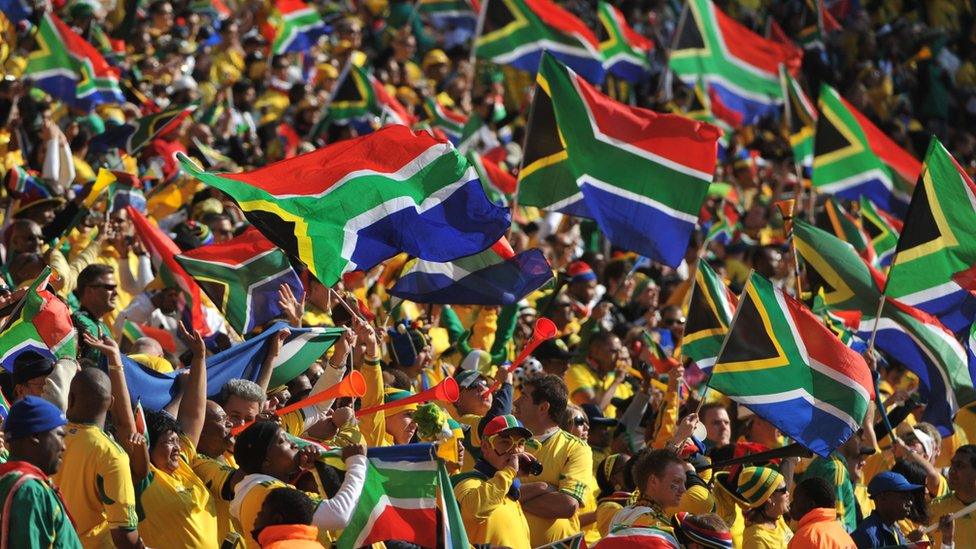
South Africa's hosting of the 2010 World Cup was a success, but its team has fallen short
This is certainly one area that needs to be addressed if Africa is to advance, for those that are leading the way in less prominent sports are often doing so without the assistance of any federation.
A case in point would be Cameroon's Francoise Mbango, one of only two female athletes to have won back-to-back Olympic golds despite giving birth in-between.
The triple jumper achieved her successes in 2004 and 2008 through her own indomitable spirit, training with her sister in Paris because of the negligible assistance from the Cameroonian authorities.
She has since changed her national allegiance to France.
The relative paucity of good African sports administrators also lies in the fact that many of them only go into the job to make money or gain a public profile on which to launch a political career - rather than for the love of sport itself.
In South Africa, many of those who have run football over the last two decades are former freedom fighters who were rewarded by the African National Congress (ANC) with lucrative posts in sport - albeit one that did not always reflect their abilities.
The result has been a steady decline in the fortunes of Bafana Bafana.
'Sea of apathy'
One of the most interesting aspects to the Kenyan doping story was the role played by the athletes themselves, who occupied the headquarters of the governing body Athletics Kenya last November to demand change.
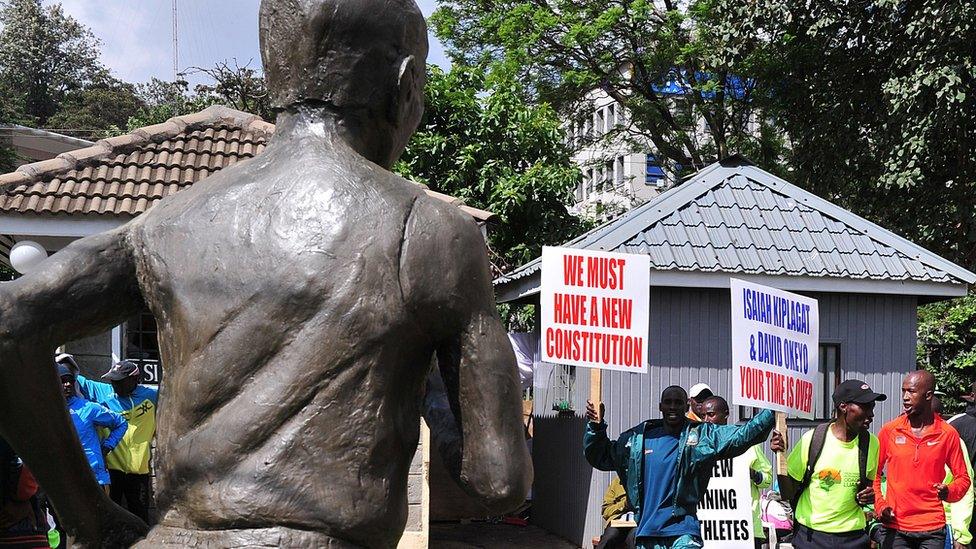
Demonstrating athletes in Kenya held up placards demanding reform
Many argue for the presence of more former sportsmen on boards to improve administration, but it is hard to judge if this would work until more get involved.
The efforts of one certainly leave little to be desired.
Back in the 1950s, Senegal's Lamine Diack was a long jumper with unrealised Olympic ambitions; but he did make it to the top of athletics, running the IAAF between 1999 and 2015.
Whatever he achieved in that long reign is now overshadowed by the most serious of allegations faced by any sports administrator - that he knowingly overlooked doping infringements in exchange for bribes, or personal profit. He is being investigated by French police and denies the accusations.
So it is little wonder that so many athletes fail to reach the top or simply leave the continent altogether - take Nigerian sprinter Francis Obikwelu as an example.
In 2000, he injured himself while representing his nation at the Sydney Olympics.
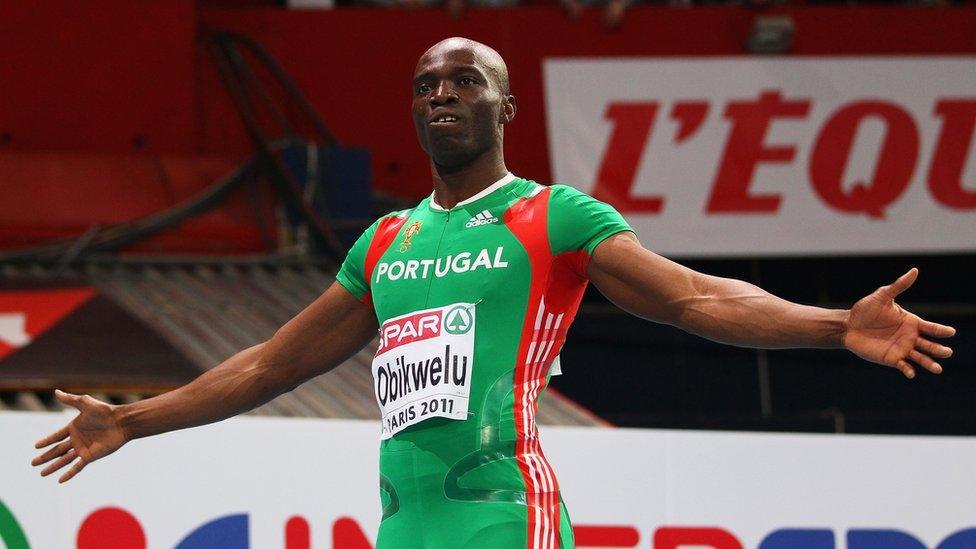
Francis Obikwelu now proudly competes for Portugal
In the days and months that followed, the sprinter was so angered by the care he received - he had to pay for his own knee surgery amid a sea of administrative apathy - that he switched his national allegiance to Portugal.
Four years later, Obikwelu showed Nigeria what might have been as he became the first 'Portuguese' to ever win an Olympic medal, taking silver in no less an event than the men's 100m.
It is a tale that encapsulates perhaps the most frustrating aspect for devotees of African sport - namely, the nagging thought of what could be achieved by the continent's sportsmen and women should their ability be harnessed in the right way.

The Africa Debate on the BBC World Service at 19:00 GMT on Friday 29 April 2016 will be considering: Is there a failure of leadership in African sport?
- Published20 April 2016
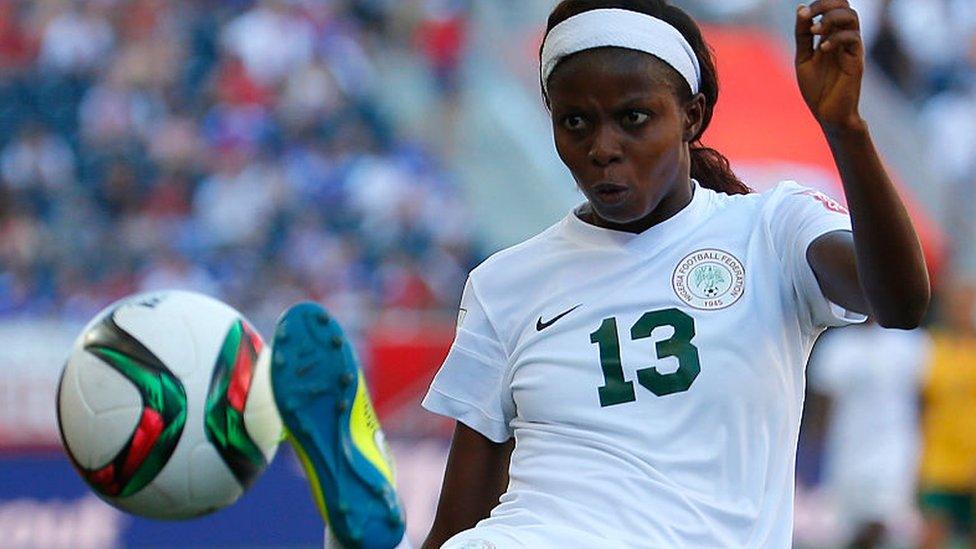
- Published29 May 2015
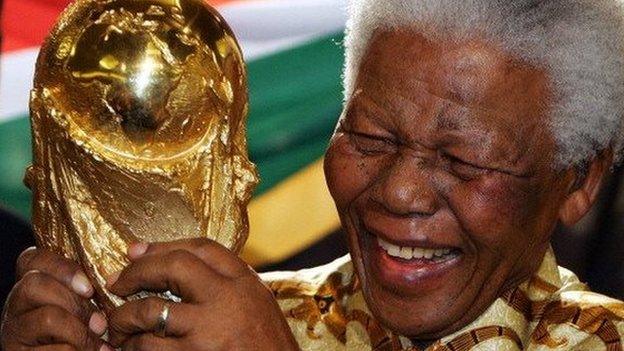
- Attribution
- Published22 June 2012
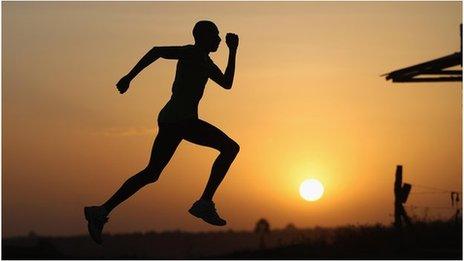
- Published8 October 2015
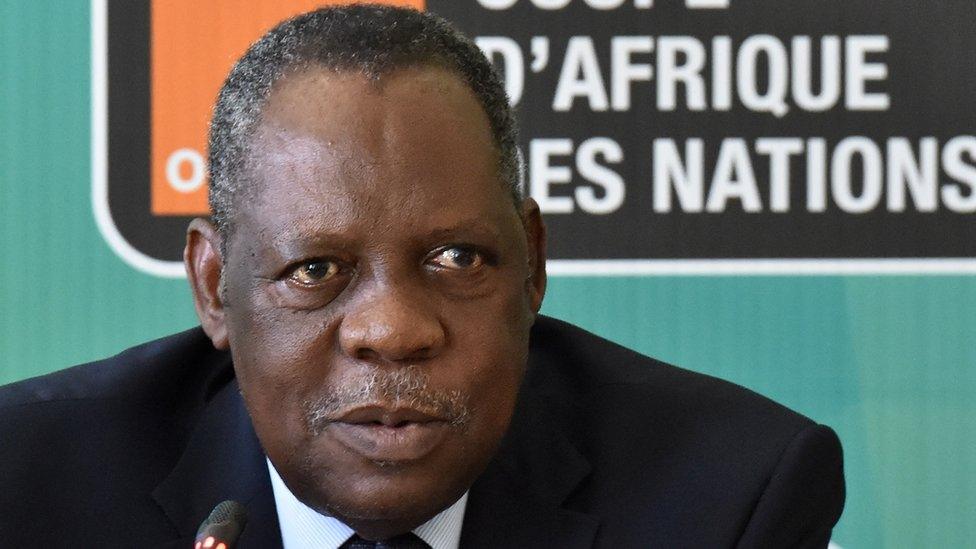
- Published19 August 2015
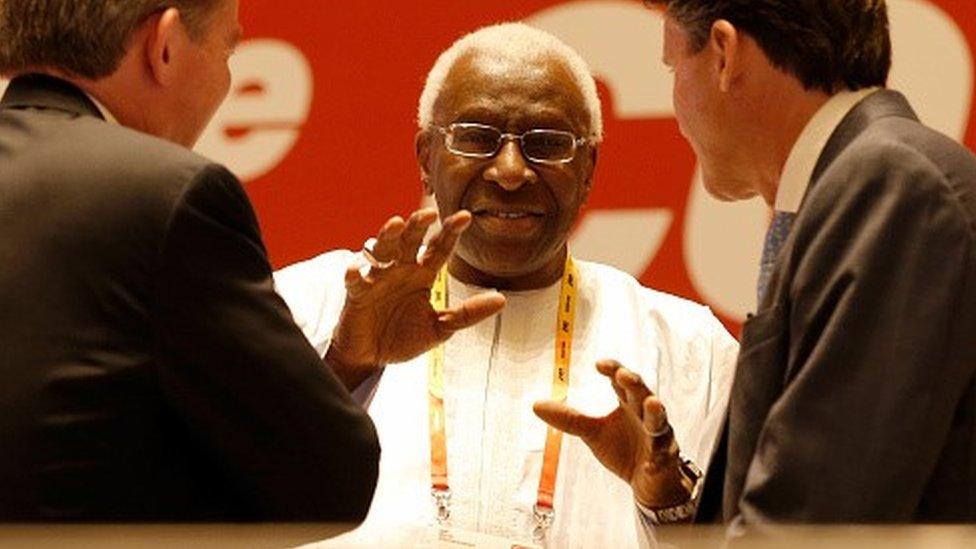
- Published22 March 2015
